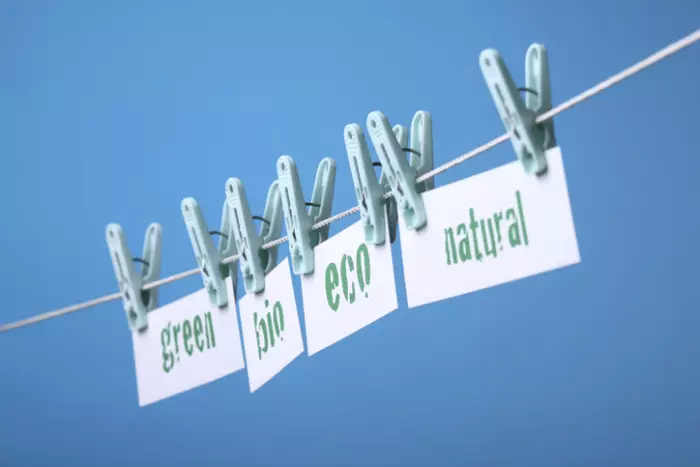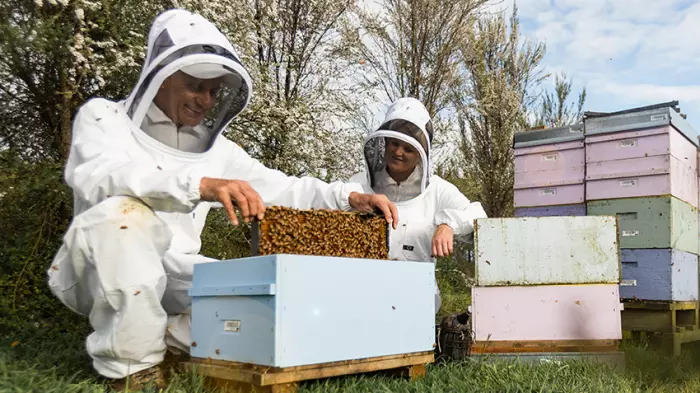The Commerce Commission believes New Zealand can be a leader in the fight for sustainability.
The comment came after thee iconic companies were accused of greenwashing by Consumer NZ after claiming on product labels that their products were compostable.
The companies, Dilmah, Proper Crisps and Cottonsofts, responded that their claims were valid and backed by research and certification.
General manager of Fair Trading at the Commerce Commission Vanessa Horne said she wanted the NZ market to be “racing to the top” and “really proud” of its sustainability record.
"Consumers are looking for more information to support their environment, but also the life cycle of goods as well.
“People are looking for this; there's an opportunity.”
She said the Commerce Commission is working to ensure more guidance is available around greenwashing.
It's tricky, she said, because only courts could actually decide whether a company had breached the rules or not – if they were prosecuted under the Fair Trading Act.
Horne said the Fair Trading branch of the Commerce Commission is the “linesman that sits between businesses and consumers".
She said if there are factors people would like to be included, they should contact the commission because “we always want to improve our standards” around businesses making accurate claims.
Many businesses were solving issues and engaging consumers on environmental sustainability, Horne said, but it was disappointing when some were caught not complying. However, the commission can take enforcement action against them.
Under an inquiry as part of the Official Information Act, BusinessDesk discovered the commission had received 199 complaints between Jan 1, 2018, and Aug 3, 2022.
However, Horne said the Commerce Commission hadn’t looked into Consumer NZ’s greenwashing claims against Dilmah, Proper Crisps or Cottonsofts.
She did confirm that the commission engages with the Advertising Standards Authority because the issues “transcend all of us” and everybody is working together for the consumers and for business. Greenwashing was not good for anybody. The disposal and recycling claims have been a “big focus” for the commission over the past couple of years.
Consumer NZ is a watchdog
Horne said Consumer NZ had a key role as a watchdog, because it could ask businesses for more information. But there were very few organisations like this.
“They look out across the new landscape and highlight some really big issues in a way that people like – raising the issues and wanting businesses to do the right thing and ensuring consumers are much better voiced as well.”
Marketing Association chief executive John Miles said Consumer NZ’s greenwashing claims against Dilmah, Proper Crisps and Cottonsofts are “a very big accusation to make” and his expectation is that any company should be given the right of reply to prove and substantiate claims made against them.
Miles said his understanding of greenwashing was that a company would represent itself as doing “fabulous things” for the environment but, when you “peel back the layers of the onion”, the claims were more for promotional purposes.
He said greenwashing was something all competent marketers were aware of. The four P's of marketing were product, price, place and promotion.
"One of the basic four P’s of marketing is product – packaging comes under that. So, if labels are misrepresenting themselves, it’s misleading advertising."
An issue of credibility
Most brands wouldn’t want to make these false claims because they’d lose their credibility, he said.
"If you can’t substantiate a claim, then you can’t make it, otherwise you fall foul of both the Advertising Standards Authority and the Commerce Commission," Miles said.
“Substantiated means you’ve got proof that what you’re claiming is 100% accurate.
“Any claim that you make, regardless of whether it’s to do with the environment or any consumer benefit, if you can’t substantiate it, then you can’t make the claim.”
The Organic Materials Sector Group steering committee chair, Chris Purchas, said the issue of product labelling was complex.
The guidelines on compostable and biodegradable packaging is a guide for manufacturers to provide clarity about the terms they can use to advertise their products to reduce confusion for consumers.
Compostability claims
WasteMINZ and the Commerce Commission’s Environmental Claims Guidelines state that any claim of compostability should be backed up by recognised certification by a third-party organisation.
This ensures that the product has been tested in its final form and meets the standards required.
For full transparency, a producer should always ensure certification is shown on their labels to ensure the consumer can make an informed decision about the product they will buy.
It’s important to note that the word “biodegradable” on its own was meaningless, Purchas said.
Consumers need more specific information to ensure they can dispose of a product in the correct way – for example, “biodegradable in a home compostable system” or “biodegradable in a commercial compost facility”, backed up by the relevant compostability certification.
It’s also important to note that, both in NZ and internationally, although a product or package may have the correct certification, it may not be accepted by a commercial compost facility for other reasons.
The Commerce Commission issued a warning to Glopack NZ in September 2021 for breaching the Fair Trade Act by representing its hot drink cups as recyclable, because hot drink cups are not currently accepted into NZ recycling streams.
The WasteMINZ Organic Materials Sector Group is working on guidelines that will clarify what it is meant by recyclability, recycled content, reusability and repairability, and guidelines on the advertising of fibre and biomass-based compostable products and packaging. These are both expected to be released in April.
BusinessDesk has updated the story to correct Vanessa Horne's title and add quotes, at the request of the commerce commission.














